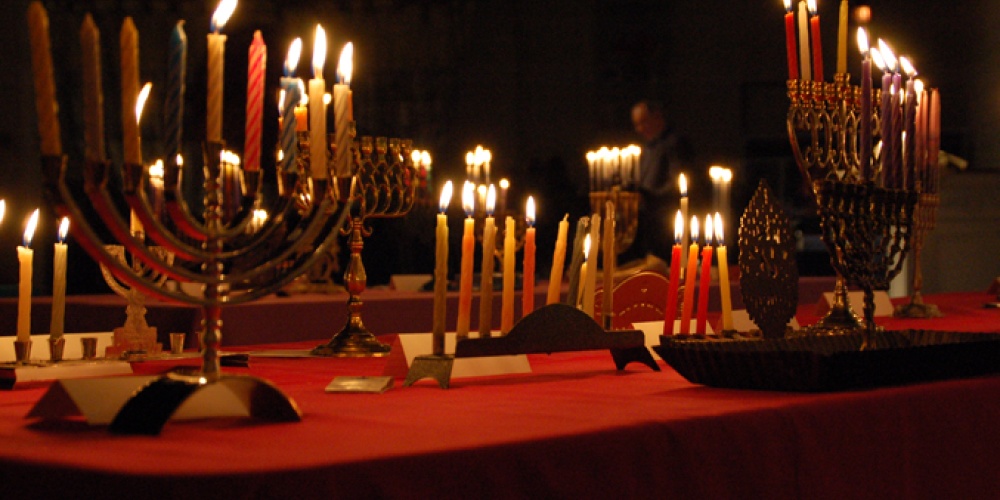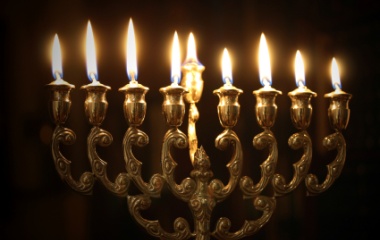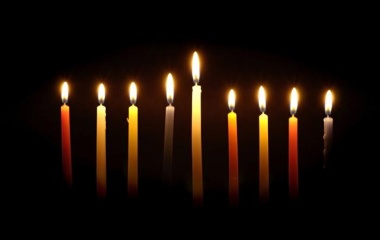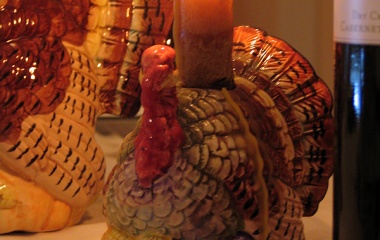
There is no more powerful symbol than light in our tradition. It is how we usher in the Shabbat, march down the wedding aisle, mark the yahrzeit of a loved one. Light is the symbol of spirituality which, unlike matters physical, is not diminished when shared. Our spiritual legacy endures long after our physical demise. Our Torah is “Torah Ohr”, the Light of Torah, uniting generations past with those not yet born.
It is through light that we celebrate Chanukah, often referred to as the festival of lights. It is no coincidence that Chanukah is celebrated at the onset of winter when the days are the shortest, and is the only holiday that begins during the second half of the month when the light from the moon is diminishing.
Yet, quite strangely, the Talmud comes to the conclusion that “it is forbidden to benefit from the [Chanukah] light”—rendering its light fully symbolic.
However, this symbolism is so important that it is specifically regarding Chanukah that the Talmud rules that one must, if need be, “sell the shirt off his back” to acquire the necessary funds to light the menorah.
Clothing represents the physical aspect of man. In the Garden of Eden, there was no need for clothes—man lived in a paradise, where the physical and spiritual worlds co-existed in harmony. With our expulsion from the Garden, these two worlds have been in a constant state of tension. Our physical bodies yearn for pleasure, whereas our spirits yearn for meaning. When a person physically leaves this world, we rend our garments, symbolizing the death of the physical and the enduring nature of the spiritual life.
Purim is the holiday that celebrates our physical survival. Haman tried to kill us and did not succeed. We celebrate by eating and drinking, and with clothing, dressing up in costumes. Chanukah, on the other hand, celebrates our spiritual survival. The Greeks wanted Judaism to Hellenize; they had nothing against Jews themselves. They idolized the physical—it is not by chance they are the founders of the Olympic games—and could not tolerate the “mutilation” of a body through circumcision. We thus celebrate with the lighting of candles.
Yet, while many who seek physical pleasure reject the spiritual, those who seek spiritual satisfaction embrace the physical. The soul can only exist within the physical body. Shabbat, the day of spirituality, must include fine dining. The divrei Torah we say at a Chanukah meal actually convert the meal to a seudat mitzvah.
While we rejected the philosophy of Hellenism, we appreciate the great good that Greek culture brought: philosophy, politics, art, even sport. The greatest of Jewish thinkers, Maimonides, felt it necessary to harmonize Greek and Jewish philosophy. The same Rambam actually combines the laws of Purim and Chanukah into one section of his legal code; the laws of Purim take up chapters one and two, and those of Chanukah are in chapters three and four. The spirit and the body must go hand in hand as we do our utmost to reduce the tension between the two.



